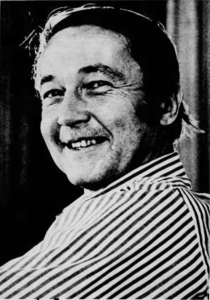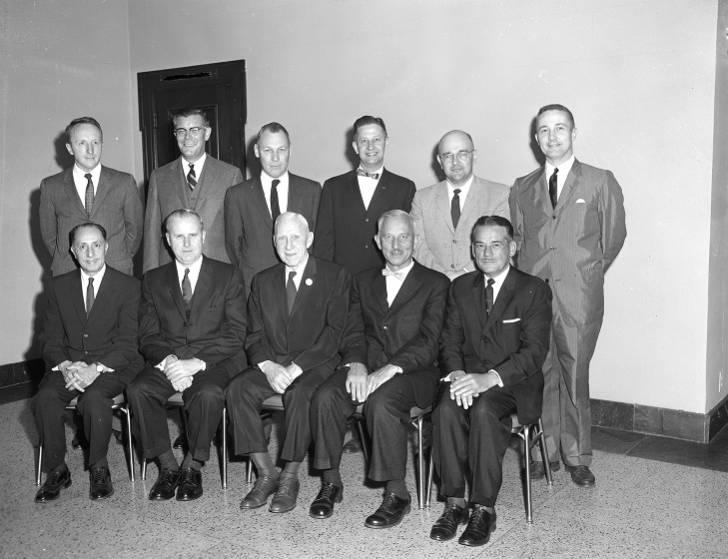
Photo info …
Credit: IndyStarView Source
(Jan. 19, 1923-July 27, 2008). Alan T. Nolan was the son of Val and author . He and his family moved to Indianapolis from Evansville when his father was appointed a U.S. district attorney in 1933. He attended Indiana University, and after graduation from Harvard Law School, he clerked for Sherman Minton at the United States Court of Appeals. He ultimately returned to Indianapolis in 1948 to practice law, where he specialized in labor relations as a partner in the Indianapolis firm of Ice Miller Donadio and Ryan. Nolan also served as the chairman of the Disciplinary Committee of the Indiana Supreme Court for seven years. He was married twice, first to Elizabeth Titsworth, who died in 1967, and then Jane Ransel DeVoe in 1970.

In 1953, Nolan helped found the (ICLU), now ACLU Indiana. A lifelong member of St. Thomas Acquinas Catholic Church, he belonged to the Catholic Interracial Council and held a position on the board of the in 1948. His civil rights activism earned him the National Council of Christians and Jews Brotherhood Award in 1968.
In 1961, Nolan penned , a novel that exposed the failings of social safety networks to protect or assist individuals in the middle tiers of society. Although the book was based on an actual Indianapolis incident, it exposed an array of bureaucratic practices aimed at dampening civic conscience, a problem that could happen in any American city.
Nolan, who was a cofounder of the Indianapolis in 1955, is better known as an author of books about the American Civil War. His history of a unit made up entirely of soldiers from Wisconsin, Michigan, and Indiana, , was published in 1961, and in 1996, , about Confederate general Robert E. Lee, appeared.
While the former was hailed as an extensive exploration of the experiences of the common soldier, the latter was such a controversial exposition of the motivations and missteps of Lee that pro-Southern sympathizers called for book burnings. Decades before the call to remove or reinterpret monuments to Confederate military leaders, Nolan’s work blasted through the myths of the Lost Cause that were perpetuated by Lee’s elevation in the nation’s memory.
As chairman of the board of the , he served during the planning and construction of the organization’s facility at 450 W Ohio Street in Indianapolis. He received an honorary Doctor of Humane Letters from Indiana University in 1993.

Help improve this entry
Contribute information, offer corrections, suggest images.
You can also recommend new entries related to this topic.

